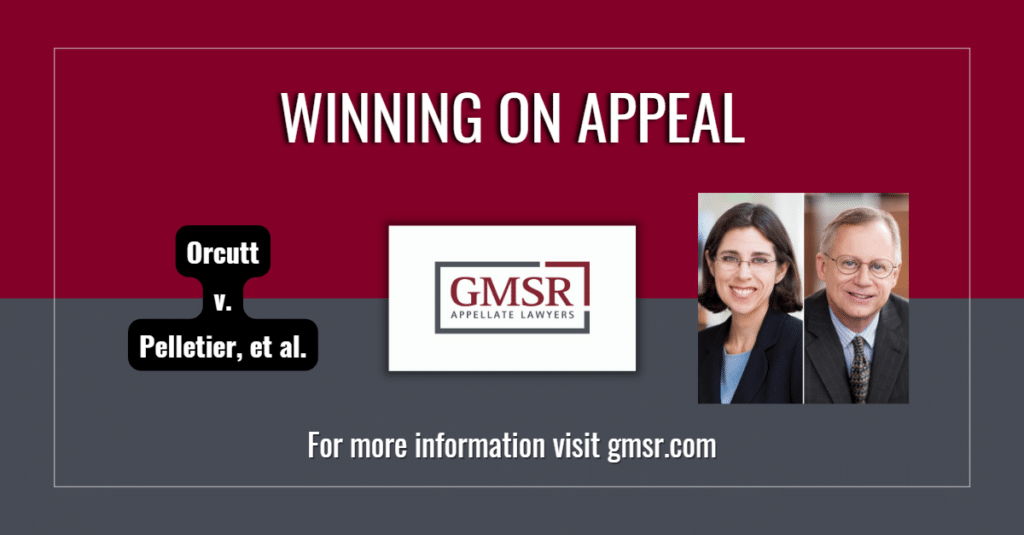GMSR wins Ninth Circuit affirmance of order dismissing evidence fabrication claims against police officers
Rental property managers in San Luis Obispo received anonymous letters threatening to shoot them and their tenants if they rented properties to minorities. City resident John MacDonald saw the letters and told the police that he recognized the handwriting as that of his former co-worker Richard Orcutt. After further investigation, Orcutt was arrested and charged with making criminal threats.
The District Attorney’s office eventually dismissed the charges against Orcutt because an FBI analysis couldn’t confirm that the handwriting was his. Orcutt then sued the investigating police officers. Among other things, he alleged that (1) one officer falsely reported that MacDonald had identified the handwriting in his presence, when in fact MacDonald had reported the identification over the phone or to a different officer, and (2) another officer falsely reported that Orcutt made racist comments while being driven to the police station after his arrest. The district court dismissed the case at the pleading stage, and Orcutt appealed.
Representing the officers on appeal, GMSR argued that the dismissal was proper because Orcutt could not plausibly allege that the alleged fabrications caused his arrest and prosecution. The Ninth Circuit agreed. It held that the identity of the officer to whom MacDonald spoke was not plausibly material to the decision to pursue charges. Likewise, because the alleged post-arrest racist comments were cumulative of other evidence and because the decision to bring and drop charges turned largely on the handwriting identification, it is “wholly implausible” that the comments played a material role in the charging decision. The Ninth Circuit also rejected Orcutt’s argument that the district court should have granted his request for leave to amend, observing that Orcutt failed to explain how any amendment could cure these defects.
To read the Court of Appeals’ Opinion, click here: Orcutt v. Pelletier, et al., 22-55494, 2023 WL 3735584 (9th Cir. May 31, 2023) (mem. disp.).
Browse By Topic
We welcome your inquiry. However, sending us an email does not create an attorney-client relationship. For that reason, you should not send us any kind of confidential information. Until we have agreed to represent you, we cannot be obligated to keep it confidential.







